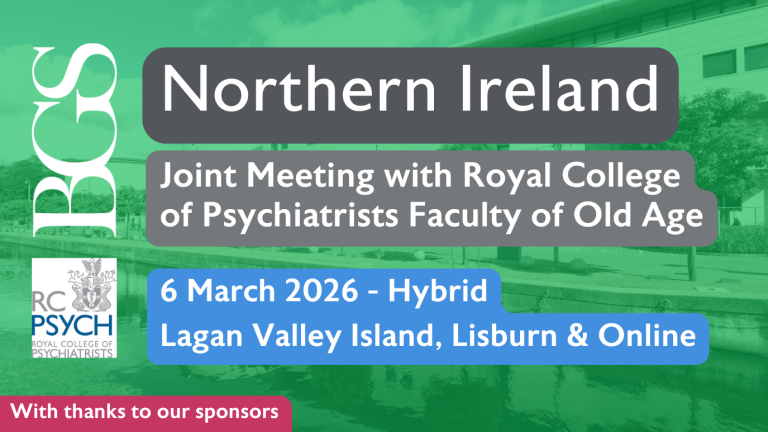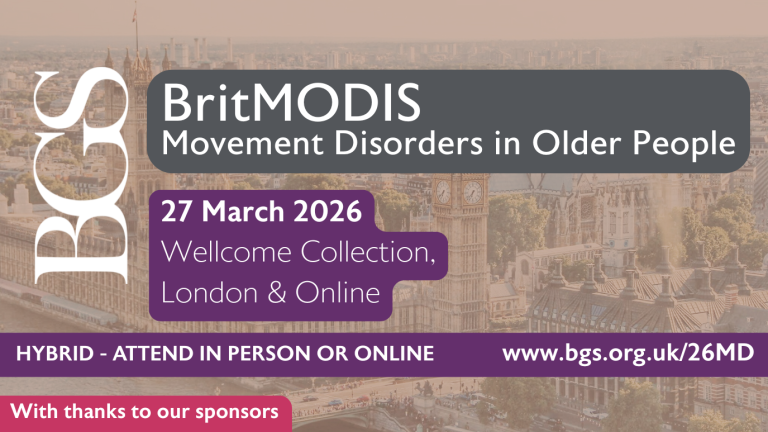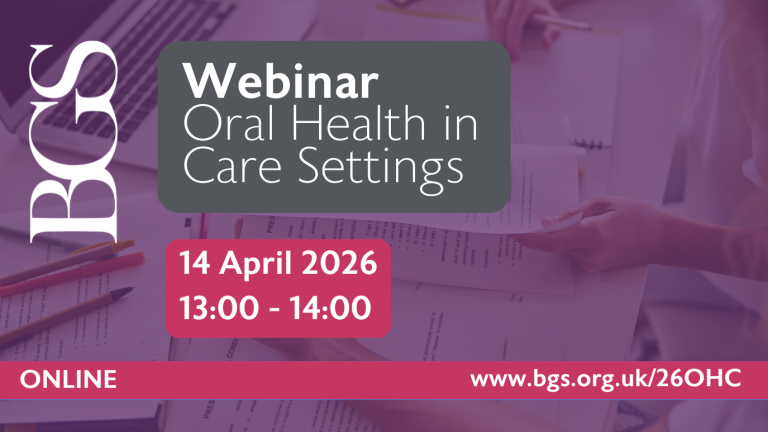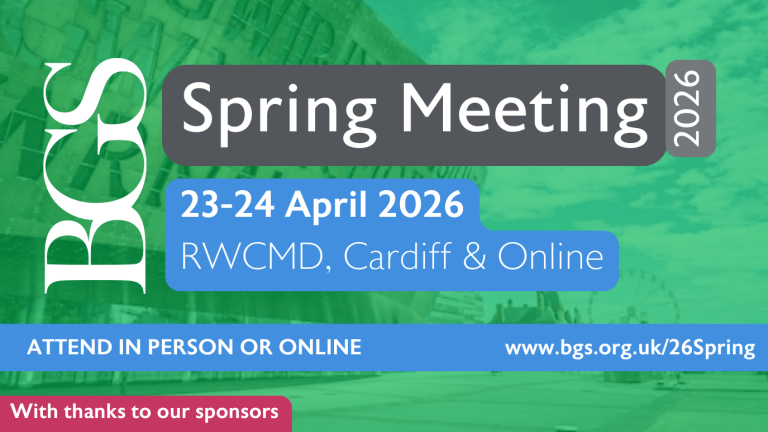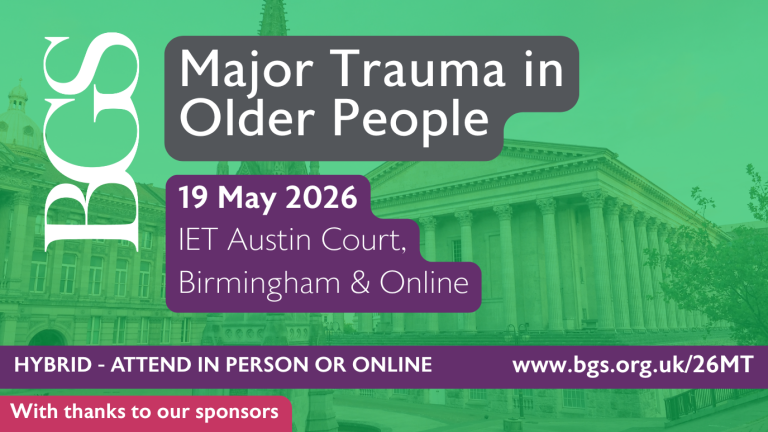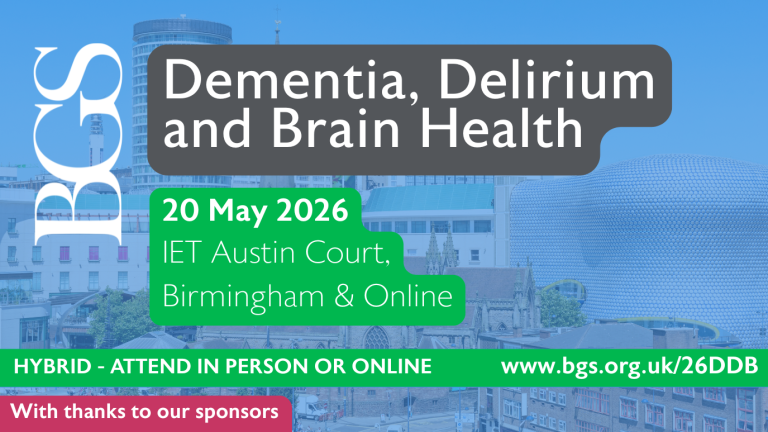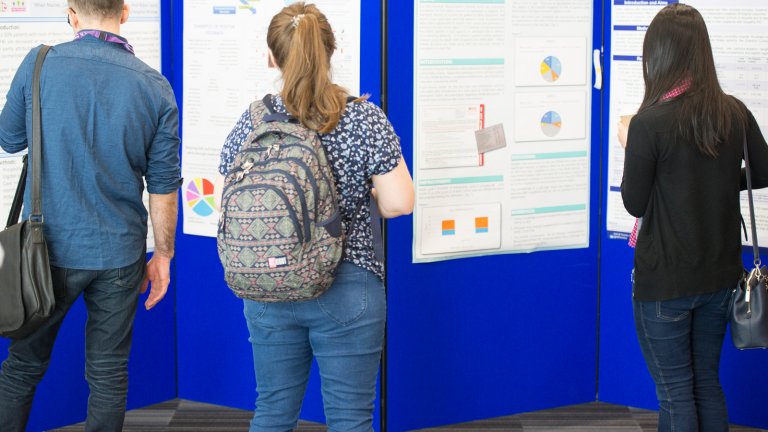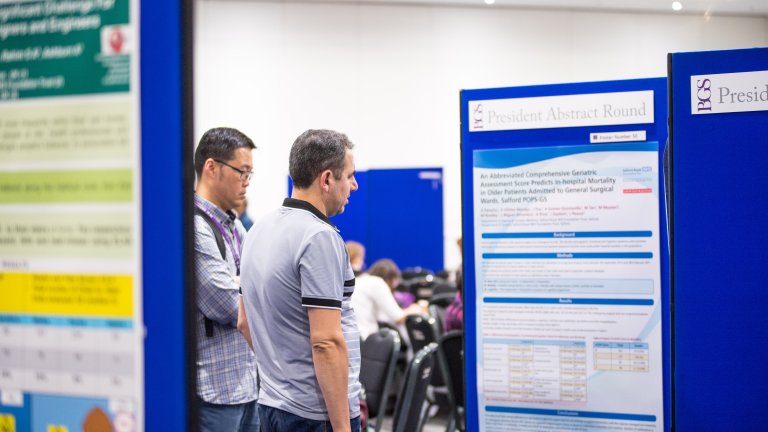One of the British Geriatrics Society’s primary objectives is to showcase high quality scientific research at its conferences and the BGS wants to present your research.
You will need to have a web account to submit your abstract(s). If you don't have one, you will be able to create one during the submission process. This is free and you don't need to join the BGS to create one.
The upcoming meetings and submission deadlines are below:
The BGS is accepting abstract submissions for the meeting listed in the table below. Assessors will review abstracts online. Posters will be displayed on the BGS website and platform presentations delivered online. Posters presented at the Spring and Autumn meetings only will be included in our Age and Ageing supplements. Please submit using the links below.
| Meeting | Abstract submission open | Abstract closing date |
Expected date of results
|
Meeting Dates | Submission link |
| 2025 Autumn Meeting | 1 April 2025 | Closes: 5pm 11 July 2025 | Week commencing 15 September 2025 | 12 - 14 November 2025 | Results online |
| 2025 G4J Conference | 1 April | Closes: 5pm 29 August 2025 | Week commencing 22 September 2025 | 15 November 2025 | Results online |
| 2026 World Falls Congress | 1 July 2025 | Closes: 5pm GMT 19 January 2026 | Week commencing 16 February 2026 | 23-24 June 2026 | Submissions Closed |
| 2026 Joint BGS Northern Ireland and RCP Faculty of Old Age Psychiatry | 1 October 2025 | Closes: 5pm GMT 5 January 2026 | Week commencing 20 January 2026 | 6 March 2026 | Submissions closed |
| 2026 BritMODIS | 1 October 2025 | Closes: 5pm GMT 26 January 2026 | Week commencing 9 Feb 2026 | 27 March 2026 | Submissions Closed |
| 2026 Dementia, Delirium and Brain Health | 1 October 2025 | Closes: 5pm GMT 16 February | Week commencing 9 March 2026 | 20 May 2026 | Submit abstracts online |
| 2026 Major Trauma in older people | 1 October 2025 | Closes: 5pm GMT 16 February | Week commencing 9 March 2026 | 19 May 2026 | Submit abstracts online |
| 2026 Spring Meeting | 1 September 2025 | Closes: 5pm GMT 12 January 2026 | Week commencing 2 March 2026 | 23-24 April 2026 | Submissions Closed |
| 2026 Cardiovascular Health | 1 October 2025 | Closes: 5pm GMT 10 July | Week commencing 3 August 2026 | 24 September 2026 | Submit abstracts online |
| 2026 POPS | 1 October 2025 | Closes: 5pm GMT 10 July | Week commencing 3 August 2026 | 25 September 2026 | |
| 2026 Autumn Meeting | 1 October 2025 | Closes: 5pm GMT 24 July 2026 | Week commencing 4 September 2026 | 12 - 13 November 2026 | Submit abstracts online |
